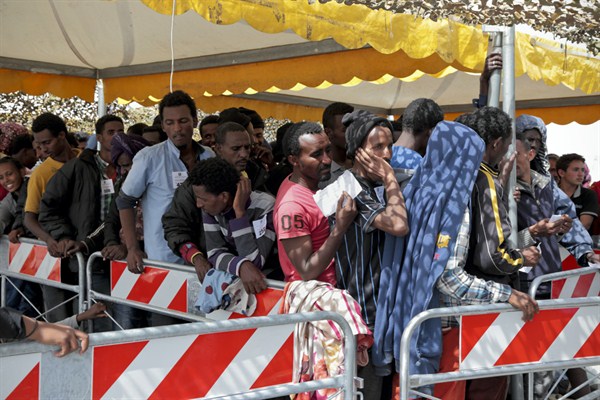The recent spike in the numbers of migrants trying to reach Europe’s Mediterranean shores, accompanied by media images of fatal capsizings and other tragic scenes of human suffering, has reminded people of the moral as well as the humanitarian and political dimensions of the issue. This week, in response to months of urgent appeals, the European Union drafted recommendations for a quota system to distribute asylum-seekers and other migrants across the EU, to relieve some of the burden on the southern European states of Italy, Malta and Greece. But the debate over these migrants remains divisive and passionate.
World media and public opinion have found fault with European states that are struggling to cope with maritime humanitarian disasters and influxes of new migrants. The general tone of media coverage, as well as that of public intellectuals and opinion shapers, is that those who have risked so much to make a new life in Europe should be treated with generosity as their cases for asylum or immigration are adjudicated. The idea of instead returning them to their country of origin, or detaining them in poorly serviced facilities, is often portrayed as being inconsistent with the EU’s enlightened principles and its commitment to universal values of human rights and human dignity.
It is easy to demonize those who argue that there are limits to what Europe can offer these migrants. But a more textured analysis of the chain of responsibility for this terrible human drama is needed. European states also have obligations to their citizens, and several are still adjusting to a serious financial downturn that has led to reduced spending in many public services. Civil society and human rights organizations are placing pressure on European states and societies to increase maritime rescue operations, expand immigrant processing facilities and expedite resettlement. These demands are noble in purpose but need to be tempered by the simple realities of finite resources. Easing migrants’ transition to life in Europe might also encourage even larger numbers of migrants to attempt the journey, further overwhelming institutions in southern Europe, in a dynamic known as the pull factor.

